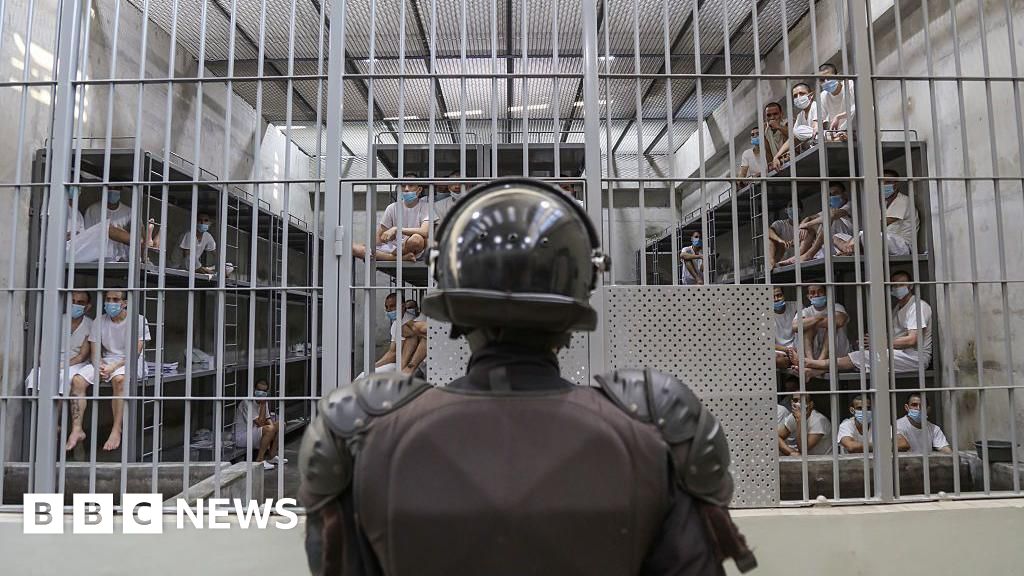The US Supreme Court ordered the Trump administration to stop the deportation of a group of Members of the alleged Venezuelan gang.
Men in their detention in northern Texas under the law of war in the eighteenth century, and the civil freedoms group filed a lawsuit against the government, saying that it had no opportunity to contact their case in court.
Donald Trump sent accused members of the Venezuelan gang to a massive, notorious generation in El Salvador, as he summoned the law of foreign enemies 1798, which gives the president the authority to request the detention and deportation of indigenous people or the “enemy” citizens without usual operations.
I only used the verb three times, all during the war.
The last time was called in World War II, when people were imprisoned of Japanese origin without trial and thousands were sent to detention camps.
Since he took office in January, Trump’s strict immigration policies have faced a number of legal obstacles.
Trump accused the Venezuelan gang, Treen de Aragua, of “committing, experimenting and threatening the invasion or predatory penetration” on the American region.
Among the 261 Venezuelan who were deported to El Salvador from April 8, 137 was removed under the Law of Foreign Enemies, according to the BBC, a senior administration official at the BBC.
The lower court prevented this deportation temporarily on March 15.
The Supreme Court initially ruled on April 8 that Trump could use the law of foreign enemies to deport alleged gang members, but the deportees must be given an opportunity to challenge their removal.
The lawsuit, which led to the order on Saturday, said that the Venezueians detained in northern Texas had been given notifications about their imminent deportation in English, despite the detention of only one Spanish speaking.
The challenge faced by the American Civil Liberties Union (ACLU) also said that men have not been told that they had the right to compete for the decision in the court.
“Without the intervention of this court, dozens or hundreds of the suggested separation members may be removed to the sentence of life imprisonment in El Salvador without any real opportunity to contact their appointment or removal.”
Supreme Court judges Clarence Thomas and Samuel Aleo opposed Saturday.
In his second opening speech in January, Trump pledged to “cancel the presence of all foreign gangs and criminal networks that bring a destroyed crime to the American soil.”
At the highest prominent case, the government admitted that it had accidentally deported the national Salvador ábrego García, but claims to be a member of the MS-13 gang, which his lawyer and his family deny. Mr. ábrego García has not been convicted of a crime.
The Supreme Court ruled unanimously The government must facilitate the return of Mr. ábrego GarcíaBut the Trump administration said it “will not” live in the United States again.
Senator Chris van Holin, Democrat from Maryland, Mr. Obrego García visited Al Salvador He said he was transferred from the huge Sikot prison (terrorism center) to a new prison.
